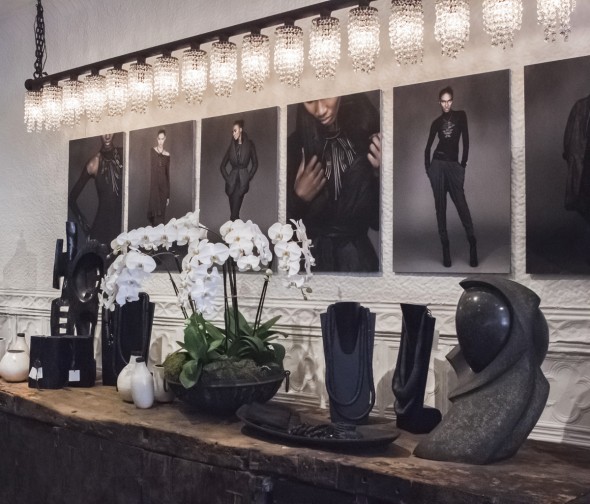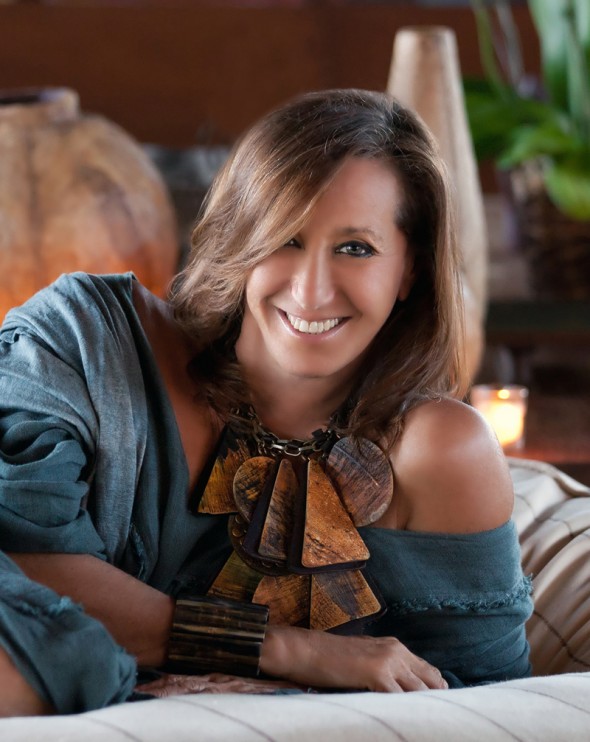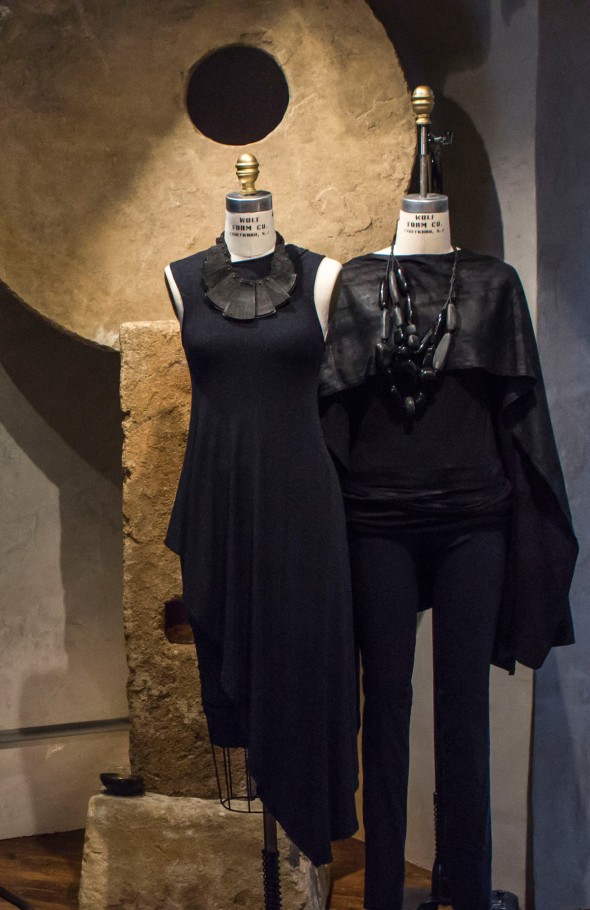
It’s just before midnight on a Wednesday, and Donna Karan is holding court at her daughter’s Tribeca restaurant, Tutto Il Giorno, playing hostess to a packed house of well-heeled guests dining on family-styleItalian cuisine; corporate titans, art collectors, supermodels and a few mega-celebrities fill the house. As she weaves through the tables, introducing herself, smiling and thanking her guests (who’ve turned out to celebrate fashion photographer Russell James’ latest book Angels), she radiates a particular vibe of both ease and ebullience, an attitude that goes against the traditional grain of New York’s notoriously hard-edged populous, but which now defines Donna Karan and her mission of “urban zen.”
Although Karan sold her namesake company to luxury giant LVMH Moët Hennessy Louis Vuitton in 2001, she has another passion project that’s been keeping her busier than ever—one that combines both her legendary design sensibilities and an ever-growing commitment to philanthropy. Urban Zen is Donna Karan’s current obsession; founded in 2007, the organization brings together fashion, health and spiritual wellness, cultural collaboration and community-building, all coalescing into one immensely inspiring platform.

After losing her husband to lung cancer, Karan turned her indefatigable focus to our country’s flawed healthcare paradigm. The Urban Zen Integrative Therapy (UZIT) program was born from Karan’s personal tragedy and her desire to improve the patient experience by mitigating the stress and anxiety that accompanies illness and disease through holistic interventions. At UCLA, for example, medical students learn how to integrate yoga therapy, Reiki, essential oil therapy, and nutrition into their patient-care. Yoga is a central component of UZIT, and special classes are now offered at studios across New York, the Midwest, and in California.
Based in Greenwich Village, the Urban Zen retail boutique radiates an understated elegance that is inherently metropolitan—but with flexibility and a soul. Adjacent to the boutique, which Karan calls “a total lifestyle experience from fashion, to objects of desire, to art and photography from all around the world,” is her late husband Stephen Weiss’ art studio, now an event space and center for community initiatives, including classes, conferences, and art exhibitions. Proceeds from Urban Zen’s retail sales go back into the Urban Zen Foundation, Karan’s public charity, which supports not only healthcare reform, but also children’s education and what Karan terms “the soulful economy.”
“Urban Zen is just one model of creating change,” says Karan, “and as consumers and global citizens it is paramount that we come together, address what is needed and decide to do business differently.”
Manhattan is rarely associated with anything zen, but Karan has created an oasis within the city’s frenetic, ever-shifting concrete landscape. Her Urban Zen fashion line epitomizes the contemporary, professional femme fatale, much like her no-nonsense break-out line “Seven Easy Pieces,” which catapulted her to fashion infamy in the mid-1980s.
Branding ingenuity has made Donna Karan’s name synonymous with New York City, but the designer’s visionary business sense began long before her iconic DKNY billboard in SoHo made headlines in the early 1990s (in fact, Karan was the first American designer to open a fashion store in China). Originally from Forest Hills, New York, Karan (born Donna Ivy Faske) studied at Parsons and went to work for Ann Klein in the late 1960s as an associate designer. Following Ann’s death in 1974, Karan became the house’s head designer at the tender age of 25. She formed her own company in 1984, and debuted the “Seven Easy Pieces” or “Essentials” line the following year, comprised of seven outfits that could be mixed, matched, and transitioned effortlessly from day to night for the modern working girl.
Karan founded DKNY after becoming one of the first designers to work with stretch fabrics in the late 1980s. DKNY began as active wear, a fun and unpretentious alternative to Karan’s traditionally “executive” style, and its core concept has informed Karan’s designs ever since. Her Urban Zen line consists almost entirely of stretch fabrics, including the line’s haute suede pants and symmetrical cashmere dresses.

Karan explains, “I am a big believer in bringing things back to the yoga mat…refocusing priorities so that well-being rises to the top and balance brings us back to a place of centeredness.” It’s precisely this mentality that affords her designs with their casual sophistication: structured comfort with an avant-garde aesthetic. Urban Zen’s clothes are a lot like Karan herself: fierce, yet forgiving.
From her philanthropic efforts to her gracious personal demeanor, Karan remains a true nurturer at heart, albeit one with considerable business acumen. In addition to her Manhattan and Sag Harbor locations, Karan will soon open an Urban Zen flagship boutique on the West Coast at A’maree’s in Newport Beach. As Karan states, “Urban Zen is my passion. It’s where all the things I care most about come together: creativity, compassion and community.” To find out more about the Urban Zen Foundation, please visit www.urbanzen.org.
By Emilie Trice

